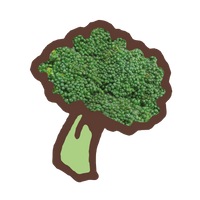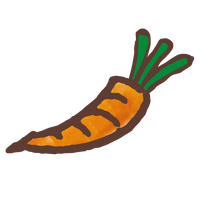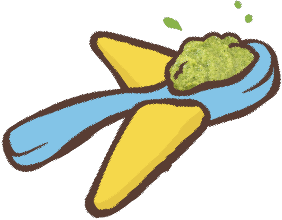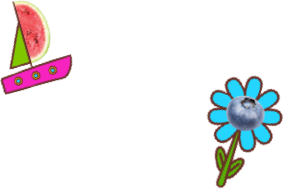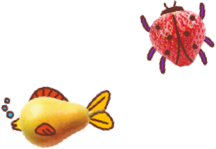Claire Baseley
Infant nutritionist / Makes Ella's Good
It’s easy to see food as just fuel, particularly when your main focus is on getting your toddler to eat as balanced a diet as possible, but food actually plays a wide range of roles that help little kids grow + develop in so many ways.
Eating with siblings, friends + family shows that food can be a connecting social experience. Don’t feel that, if you are able to eat together, that you have to only talk about the food. Mealtimes can provide a time to talk about your day + connect with each other.
It might not always feel that way if you’re stuck in a mealtime tantrum but food can be a source of fun, especially when you enjoy food with your toddler using all the senses. Engaging the with super simple sensorial activities such as touching the furry skin of a kiwi, or asking them if it reminds them of anything, like their favourite teddy? These are all super simple ways to include sensory food play into mealtimes without the pressure of eating the food. Find out more about how to make mealtimes fun with our sensory food play tips.
While most little ones are born with a sweet tooth, making it more likely that they’ll choose brownies over broccoli, introducing a wide variety of tastes will help to tingle their tiny taste buds + they’ll become more accepting of new foods.
Remember, if a food is rejected on the first or second try or if toddlers refuse a food they used to enjoy, it might take 15-20 tries or experiences of that food before it’s accepted, so don’t give up. If this sounds daunting, don’t worry – an experience of a food, often a vegetable, can simply be picking it up to go in the cooking pan, exploring veg, using all the senses outside of mealtimes, helping you shop, or seeing it on your plate.
Calcium in dairy foods, green leafy veg like kale and sesame products like tahini helps bones grow while protein in meat, fish, pulses, eggs and tofu supports growing muscles. That's why it's reeeally important to offer a wide range of foods to help little kids grow + develop in body and mind. What's more, offering a range of textures and finger foods as well as giving your toddler cutlery helps them to develop their fine motor skills, all the better to help with the cooking!
Food can be a wide range of exciting things. But it can also be used in ways that might not set up the healthiest of relationships with food.
It can be tempting to say "You can't have your pudding until you've finished your veg". However, doing this sends the message that pudding and sweet treats have a higher value than vegetables and soon, you'll ALWAYS have to offer desserts to encourage little kids to eat their veggies. What's more, if you reward good non-food related behaviour with sweets, it can teach little kids to eat when they're not even hungry. It's therefore best to avoid using sweets or treats as a reward for good behaviour.
When we’re unwell, sad or bored, we often make ourselves feel better with comfort food, which can often be less healthy. Role modelling this behaviour to toddlers or using the same approach when they are upset can again teach them to eat when they are not hungry.
When your toddler is down in the dumps, give them lots of cuddles, read them a story or do something fun together rather than offering them foodie treats.
Let’s be realistic: when you’re in a shop, in the car or standing in a queue and your toddler is bored, snacks can provide a distraction, particularly when you are occupied + especially when there are tasty, tempting foods all around. Once again, giving snacks to distract or relieve boredom tells little kids to eat when they are not hungry.
If you know you’re going to be in a situation when your toddler might get bored or frustrated, take a favourite toy or game that can occupy them or, if you can, try some non-food related super quick activities + games like:
When it comes to avoiding foodie pitfalls + tantrums, try to anticipate when food might become an issue. Think about WHEN, WHERE and WHY.
When – Do you find your toddler gets hungry around 3pm and starts craving less healthy foods? Have something healthy ready to go before little tummies start rumbling (although you can plan to enjoy a cookie or piece of cake together as part of a balanced diet, of course)
Where – If you know your toddler will get bored in the pushchair while queuing + will want snacks to distract them, plan to do some of the activities + games from above, like I Spy, in your head to relieve the boredom (but have some healthier snacks to hand as well in case your toddler is hungry too)
Why – If the kitchen cupboards contain lots of less healthy snacks at toddler level, or if you are modelling a diet that contains lots of less healthy foods, your toddler will naturally want them. It’s fine to eat these foods occasionally, without any judgement but it’s best to limit how available + visible they are for your toddler. Try to offer a variety of mostly healthy foods + keep less healthy foods out of sight unless you’re planning to enjoy them together occasionally.
Remember, there are no good + bad foods, some foods might be healthier than others but try to avoid creating a food hierarchy or using terms like “naughty”, “treat” or “junk”. For more information, check out how to talk about food with your toddler


